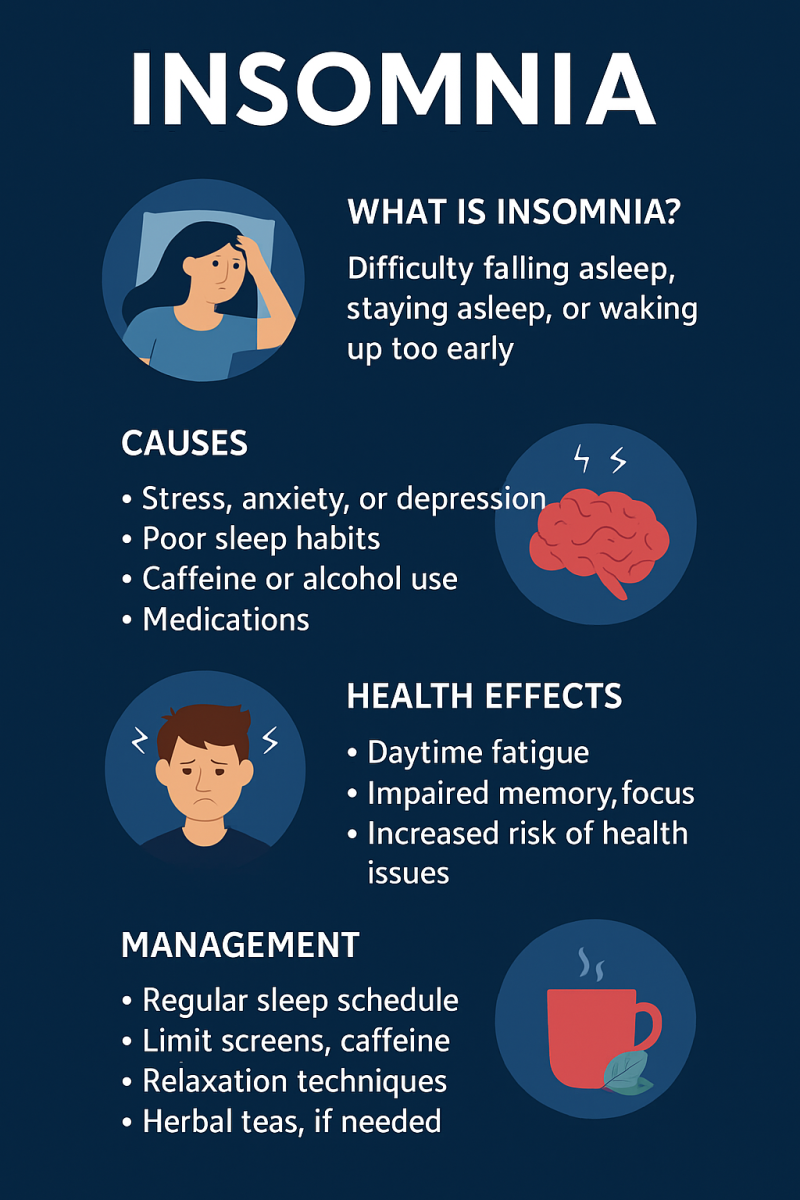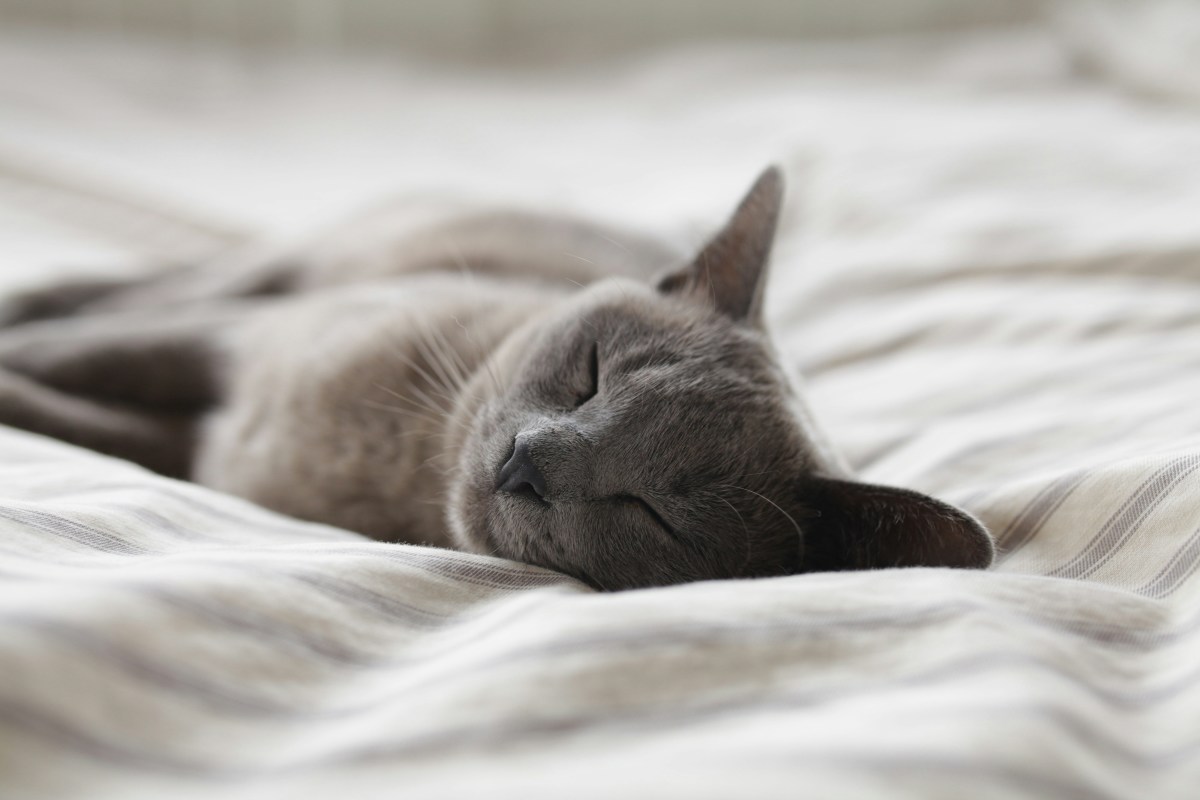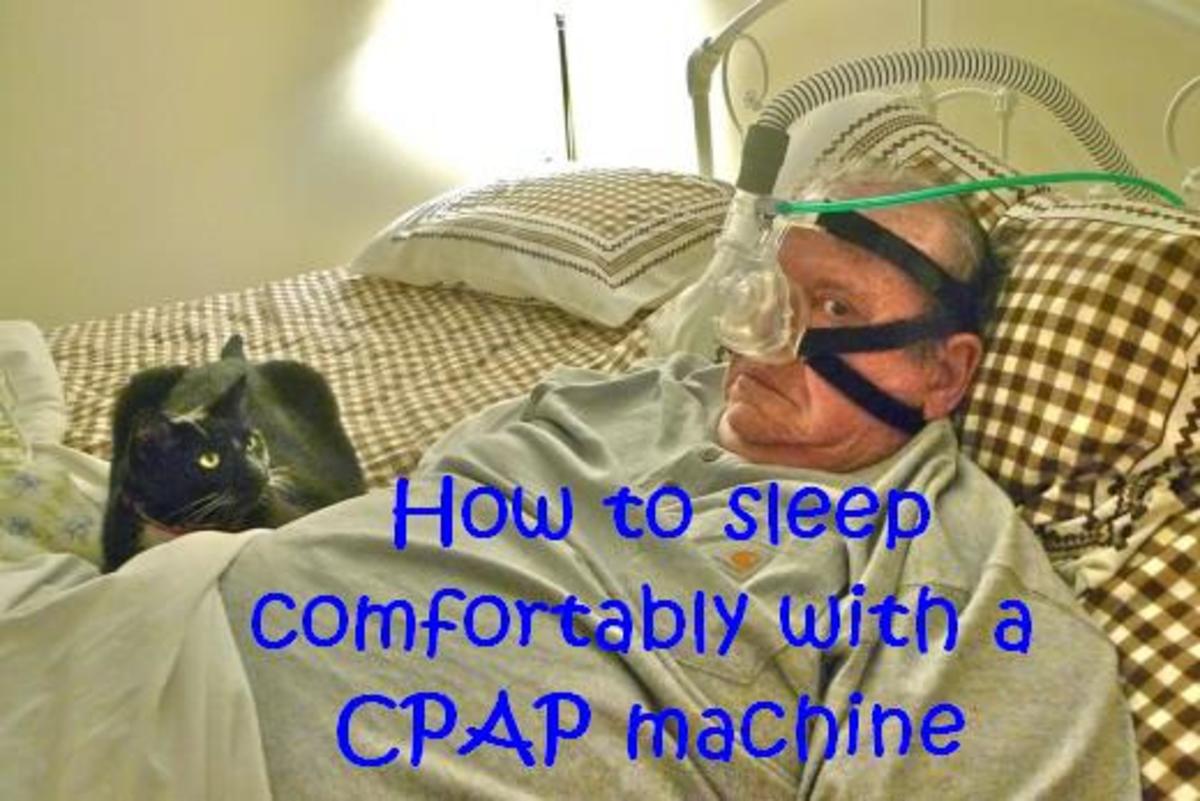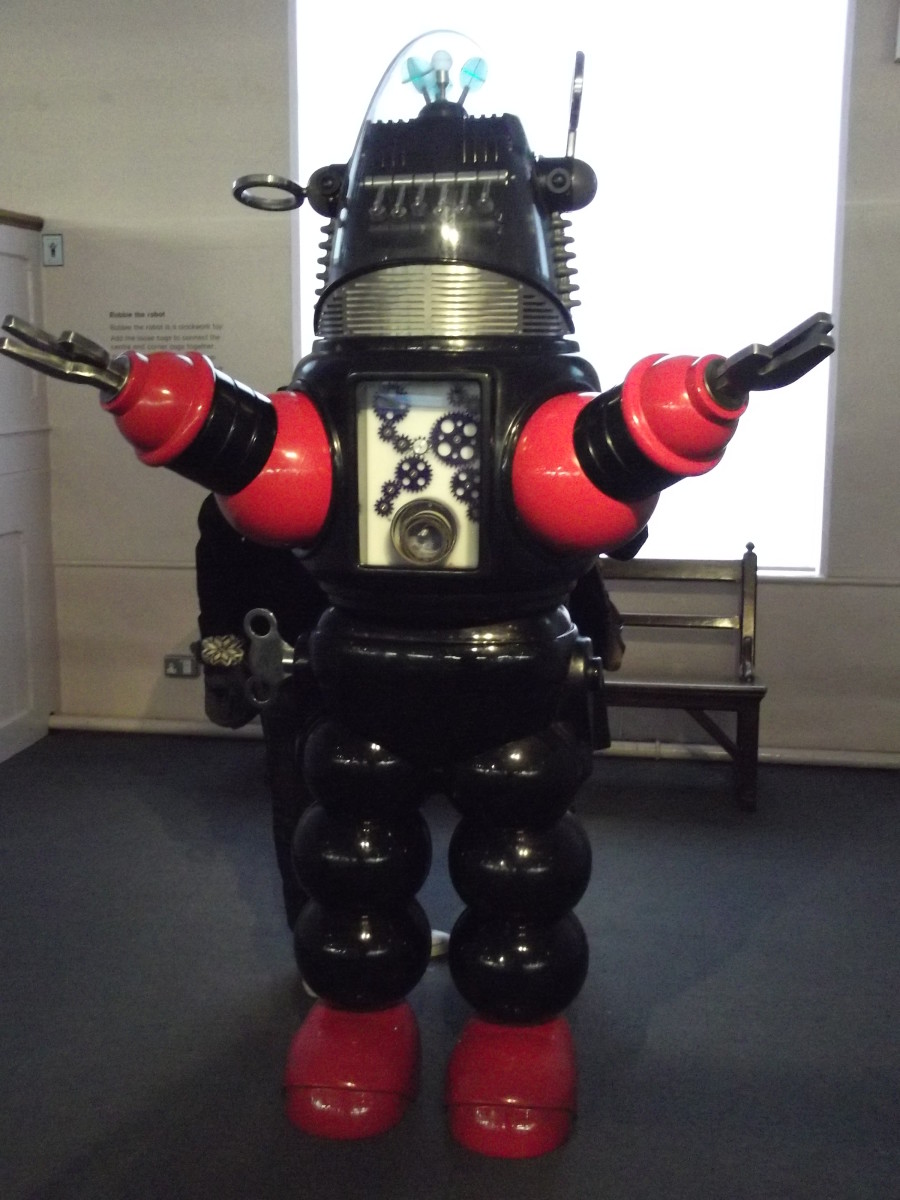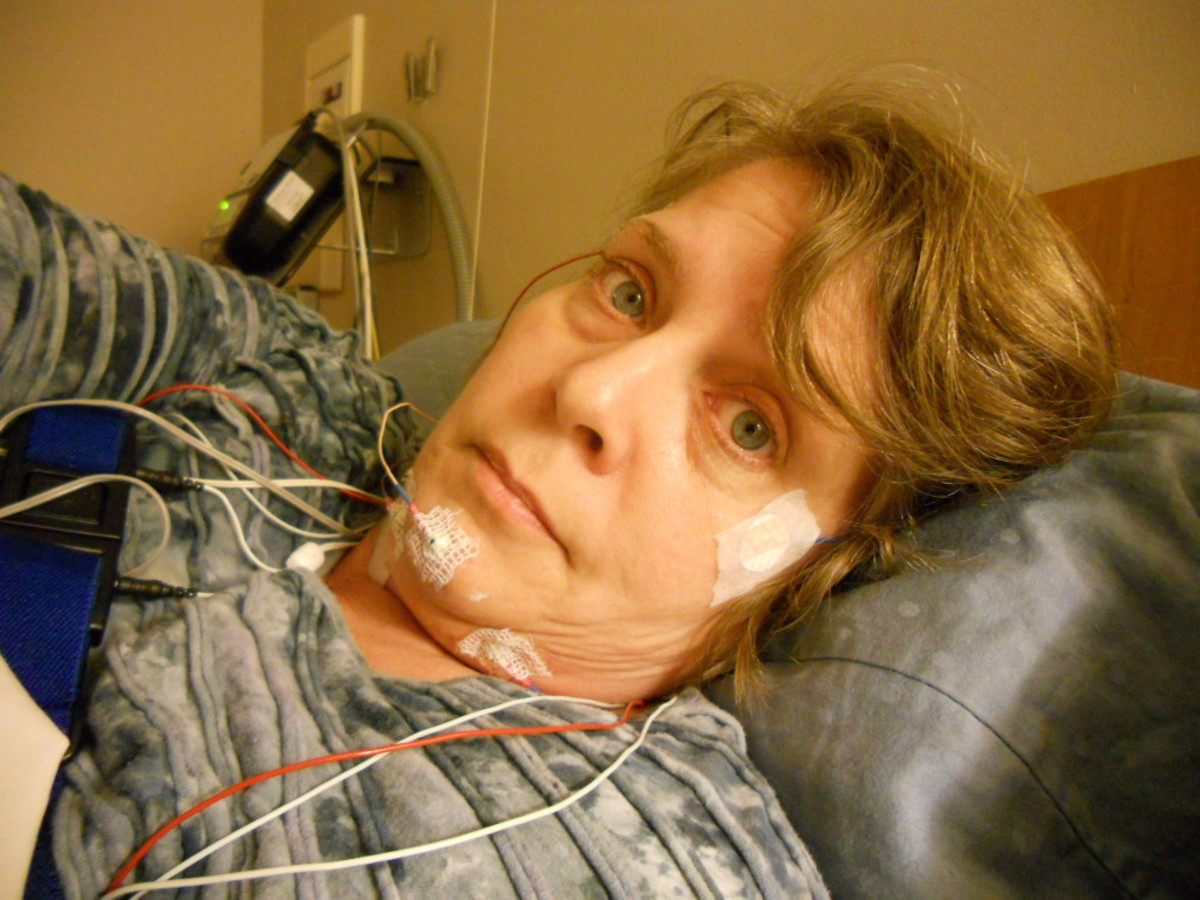Dealing With Insomnia Issues
Insomnia
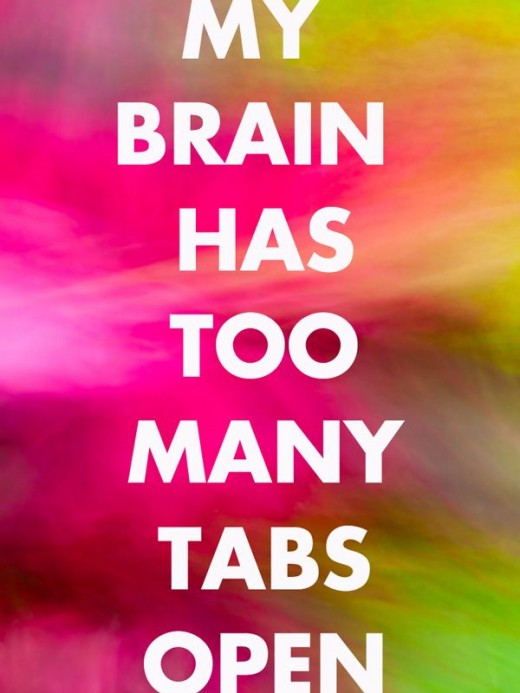
What is Insomnia
What is insomnia?
My wife and I suffer with insomnia like so many other people in the world. Both of us do not have problems falling asleep but when we do we wake up about two hours later and cannot get back to sleep. Many people are the opposite where they cannot fall asleep when they go to bed even if their body is terribly tired. Insomnia is terrible for the body. It can cause many health issues since the body does need rest to make it healthy so you can experience a proper quality of life. Some of the classic signs of insomnia are fatigue, low energy, mood swings, weight gain because of low energy which can slow down your metabolism down, and decreased performance in work or school.
There are two types of insomnia that people suffer with primary or secondary insomnia. Primary insomnia is where a person is having sleeping problems that are not directly associated with any other health problem or with taking any sort of medication. Then there is secondary insomnia, this is where a person cannot sleep due to either a health issue like cancer, depression, heartburn, restless leg syndrome, or the insomnia is from a medication or a substance like alcohol that is interfering with your sleep.
Insomnia is also broken down as acute or chronic. Acute means it can last from one night to few weeks, whereas chronic is when a person cannot sleep at least three nights a for a month or longer. Insomnia is different for people where acute is short term sleeping problems and chronic is a sleeping disorder that last a long time.
Acute short term insomnia can be caused from jet lag, noises that keep you from falling asleep, uncomfortable sleeping conditions, stress, shift workers (where your work shift changes all the time), visiting or living in high altitudes, withdrawals from drugs or alcohol or stimulates, and maybe family life keep your brain from going to sleep.
Chronic insomnia can be a underlying health issue such as, anxiety, stress (at work or problems at home), depression, mental or physical abuse, bipolar disorder. When it comes to chronic insomnia the root cause is usually from extreme stress in the life or depression, these are the two most common causes of chronic insomnia.
Insomnia
Does insomnia rule your life?
Why can't I sleep?
Why can’t I go to sleep?
This is a question that a lot of us deal with on a nightly basis. Have you ever tried a sleep diary to monitor what you do while awake before going to sleep. Some of the things to monitor are what you had to eat for dinner or after dinner snack, what type of television you are watching or what is your reading material that you look at before going to sleep, what time and where you fall asleep, write down what times you wake up during the night and is it for something to drink or go to the bathroom, do you wake up more tired than when you went to bed.
A lot of times you may find the answer in the diary of bad habits that you are doing that is causing you to stay awake or a medical condition with a bladder that is waking you up night. Do a sleep diary for about a month and then review it to see if there is any routine that is disturbing to your body.
If you are taking a sleeping pill or drinking alcohol to help you relax to fall asleep you need to stop. This could turn into a bad habit that is hard to stop, plus you could be doing harm to your body especially your liver. Stop these habits now before it is too late. It may take a few days for your body to adjust itself back to normal, but once you do you may see that you will sleep better.
Help Me.....

Habits that can help you sleep better.
Habits that may help you sleep.
Here are some things to try that may help you get better quality of sleep.
- Avoid naps during the day, if you feel like you need a nap try limiting to thirty minutes.
- Avoid stimulation before going to bed. Try turning off the television and video games a couple hours before bed. Do not have major discussions or arguments before trying to fall asleep. Turn down the lights and read or listen to calming music or any other form of soothing activity.
- Try to stick to a regular sleep schedule. Remember as a child when you had to go to bed at a certain time, this should also be a habit if you have a sleeping disorder.
- Make sure that the room you sleep in is dark and quiet and the temperature is comfortable. Try using a sound machine or like we do we have a floor fan on that drowns out any outside noise. If you have windows in the room put up black out curtains to hide any light that is trying to come in.
- Limit any caffeine to eight hours before bed, this could be beverages or chocolate. Avoid drinking alcohol at night, yes it does make you feel tired but the quality of sleep is not good. Do not smoke at night, nicotine is a stimulant that can cause insomnia.
- To boost melatonin production, avoid bright light and turn off television, smartphone, and computer screens at least one hour before bed. If you can’t make your bedroom dark enough, try using a sleep mask. This is better than taking melatonin as a supplement.
What to take to help you sleep.
What to take to help you sleep.
If you need to take a sleep aid to help you sleep there are a couple of dietary and herbal supplements that are recommended for sleep. Melatonin is a natural hormone that your body produces at night. Some people take melatonin supplements to help with short term (acute) sleep issues. The side effect for this aid is next day drowsiness. A herb on the market called Valerian has a mild sedative effect on people to help them sleep according to researchers.
Over the counter sleeping pills are to be used only for short term insomnia only. Many pill on the market advertise different ways and offer different results, but when it comes down to it the active ingredient in most of them is the same. The active ingredient is an antihistamine that is found in generally all allergies and hay fever over the counter medication. I did not know this until my daughter which is an pharmacist said to read the labels on the box and she was correct. The issues with taking an over the counter sleeping pill are the drowsiness you feel the next day and the lack of information on the market of safety concerns for taking it over a long period of time.
Scientific evidence still points to the lifestyle and behavioral conditions we live in and the environment we sleep in that makes the difference. If we can find out why we have a sleep problem and try to make the changes to the issues we should not need a sleeping pill to get us asleep at night.
Sleeping Aid
Do you take a sleeping aid?
Can't Sleep
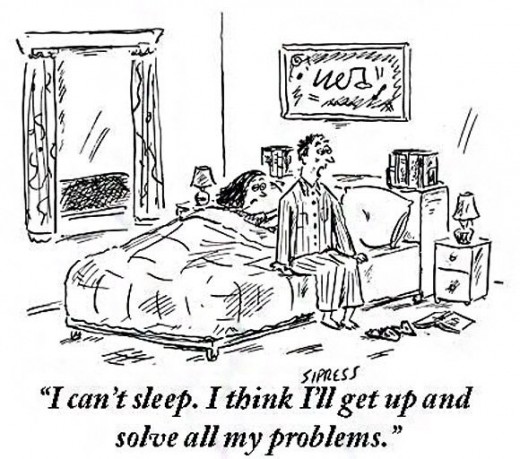
Learning to go to bed.
Fighting with your brain when you cant get to sleep is what I do best and this is so wrong. A lot of people have an issue with dreading to go to bed because you know in your mind that you are going to toss and turn all night. So the issue even starts in your head before you even attempt to lay your head on the pillow. My wife suffers with this sometimes. Now with me I will wake up a couple hours after I fall asleep and then my mind kicks in and it is a battle between right brain and left brain, and the next thing I know I am wide awake getting madder and madder at myself. I tell myself to stop thinking about things but the thoughts keep pouring in and the next thing I know 4 hours of quality sleep is gone down the drain.
If this is happening to you one thing you do not want to do is lay in bed tossing and turning and getting more angry and building up more anxiety. Try getting up and leave the room and read for a while, or take a warm bath or shower, listen to some soothing music, or drink something warm that is caffeine free.
Also move the clocks in the room you are sleeping in. Don’t lay in bed and watch the clock numbers go by when you are trying to sleep. All this does is build up the anxiety levels in your body and this is a sure fire way to cause your insomnia to get worse. What we do is turn on the alarm on the clock and then put the clock in a drawer so we cannot see it while in bed.
Medical Advice
Some people cannot make changes in their living environment or change in their lifestyle habits to help them get over insomnia then you may need to seek medical help. A medical doctor may send you to have a sleep study done to seek out what is causing you to have insomnia. I have had two sleep studies in the past several years, this last time they found that I had restless leg syndrome which can be part of my insomnia issues. Doing the research for this article has really helped me with finding out some problems that I need to correct to help mine and my wife's sleeping problems, I hope this has helped answer some of your questions.



